India’s building sector is expanding rapidly and playing a key role in the country’s economic growth. While this progress is great, it also brings challenges like high energy use, water consumption, and waste generation. To ensure a greener future, it’s essential to adopt sustainable construction practices. By using eco-friendly techniques, the industry can save water, reduce energy consumption, cut down on fossil fuel use, manage waste better, and protect natural resources. More importantly, green buildings improve the health, comfort, and well-being of the people who live and work in them.
To encourage sustainable construction, the Indian Green Building Council (IGBC) has introduced the IGBC Green New Buildings rating system. This system acts as a guide for architects and builders to design eco-friendly buildings with minimal environmental impact. It takes into account different climates and modern lifestyles to ensure practical solutions for sustainability.
To make this initiative stronger, IGBC has formed a Green New Buildings Core Committee, led by Ar. Raghavendran. This committee brings together experts from various fields, architects, builders, developers, consultants, and manufacturers, to refine the rating system and make green building certification more effective and accessible.
What is IGBC?
The Indian Green Building Council (IGBC) is an organization that promotes eco-friendly construction in India. Founded in 2001 as part of the Confederation of Indian Industry (CII), IGBC provides certifications for buildings that meet green standards.
Buildings use a lot of energy and water, leading to pollution and climate change. IGBC helps solve this problem by encouraging the construction of energy-efficient, water-saving, and environmentally friendly buildings. Through its certification programs, IGBC supports builders and homeowners in creating spaces that are not just good for the planet but also healthier and more comfortable for people.
What do IGBC certified projects mean?
IGBC-certified projects refer to buildings that have been recognized for their adherence to sustainable and eco-friendly construction practices. One of IGBC’s key initiatives is the certification of green buildings across India, with its flagship program being the IGBC Green Homes rating system, designed specifically for residential properties. This system serves as a valuable framework for architects and designers to integrate sustainable concepts into their projects, minimizing the environmental impact of new constructions.
To achieve certification under the IGBC Green Homes rating system, projects must strike a balance between traditional building techniques and innovative green solutions, ensuring sustainability throughout the building’s lifecycle. This certification signifies that a home meets IGBC’s stringent environmental standards and reflects a commitment to promoting sustainable living within the housing industry.
Government Incentives for IGBC-Certified Green Buildings
The government plays a big role in promoting environmentally friendly buildings in India by offering various incentives to encourage IGBC-certified green building projects. These incentives help developers and individuals embrace sustainable construction by making it more affordable and hassle-free.
Here are some key benefits provided by the government to support IGBC-certified green buildings:
1. Financial Benefits: The government provides financial support in the form of tax rebates, subsidies, and lower interest rates on loans. These perks help reduce the upfront costs of constructing green buildings, making them a more attractive investment for developers and homeowners.
2. Faster Approvals and Paperwork: Many state governments speed up the approval process for IGBC-certified projects. This means that developers face fewer delays and less red tape, allowing them to complete their projects faster and more efficiently.
3. Grants and Funding Support: Various government agencies offer grants and financial aid to support sustainable building projects. These funds can be used for research, innovation, and implementing eco-friendly features in new developments.
4. Certification as a Requirement for Incentives: In some cases, the government requires IGBC certification for developers to qualify for certain benefits or financial incentives. This ensures that more construction projects adopt sustainable practices.
5. Recognition and Awards: The government recognizes outstanding green building projects through awards and public appreciation. This recognition not only motivates developers to follow sustainable practices but also encourages more people to invest in green buildings.
By offering these incentives, the government is making it easier and more rewarding for developers and individuals to build environmentally friendly structures, leading to a more sustainable future for India.
IGBC Certified Projects
1. Tata Housing Development Company (Raisina Residency), Gurgaon
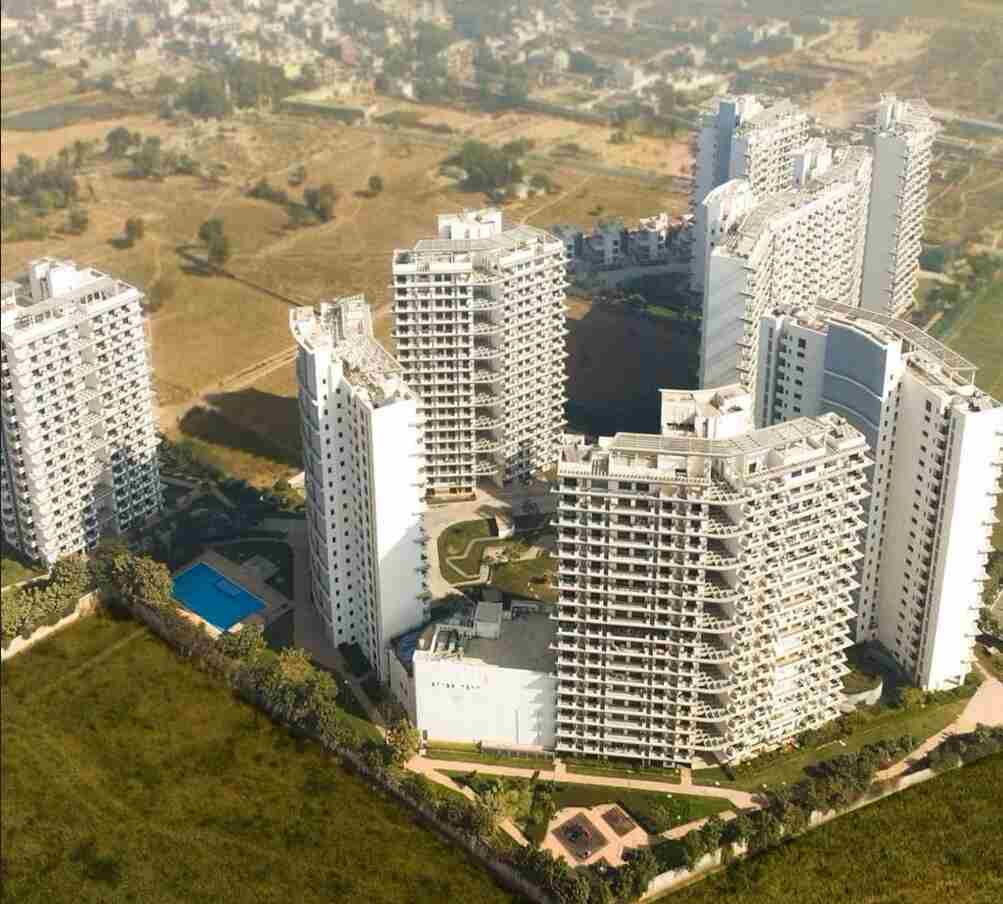
Source: Housing
Tata Housing Development Company has been a pioneer in promoting eco-friendly construction in India. In 2009, their Raisina Residency project in Gurgaon became the first residential development in the country to receive the Gold Certification from the Indian Green Building Council (IGBC).
This certification was awarded based on several key factors, including:
- Site Selection and Planning: Choosing locations and designs that minimize environmental disruption.
- Water Efficiency: Implementing systems to reduce water consumption.
- Energy Efficiency: Utilizing energy-saving technologies and materials.
- Material Selection: Using sustainable and eco-friendly building materials.
- Indoor Environmental Quality: Ensuring healthy indoor air quality and natural lighting.
- Innovation in Design: Incorporating unique and effective green building solutions.
The IGBC Green Homes rating system, under which Raisina Residency was certified, is India's first program exclusively designed for the residential sector. It aims to promote sustainable housing by balancing established practices with innovative concepts.
Expressing his delight at the achievement, Brotin Banerjee, the then Managing Director and CEO of Tata Housing, stated, "We are extremely pleased to receive yet another Gold Certification from IGBC, and this time in the residential space for our prestigious premium project, Raisina Residency, Gurgaon."
2. Infosys Limited, Mysore
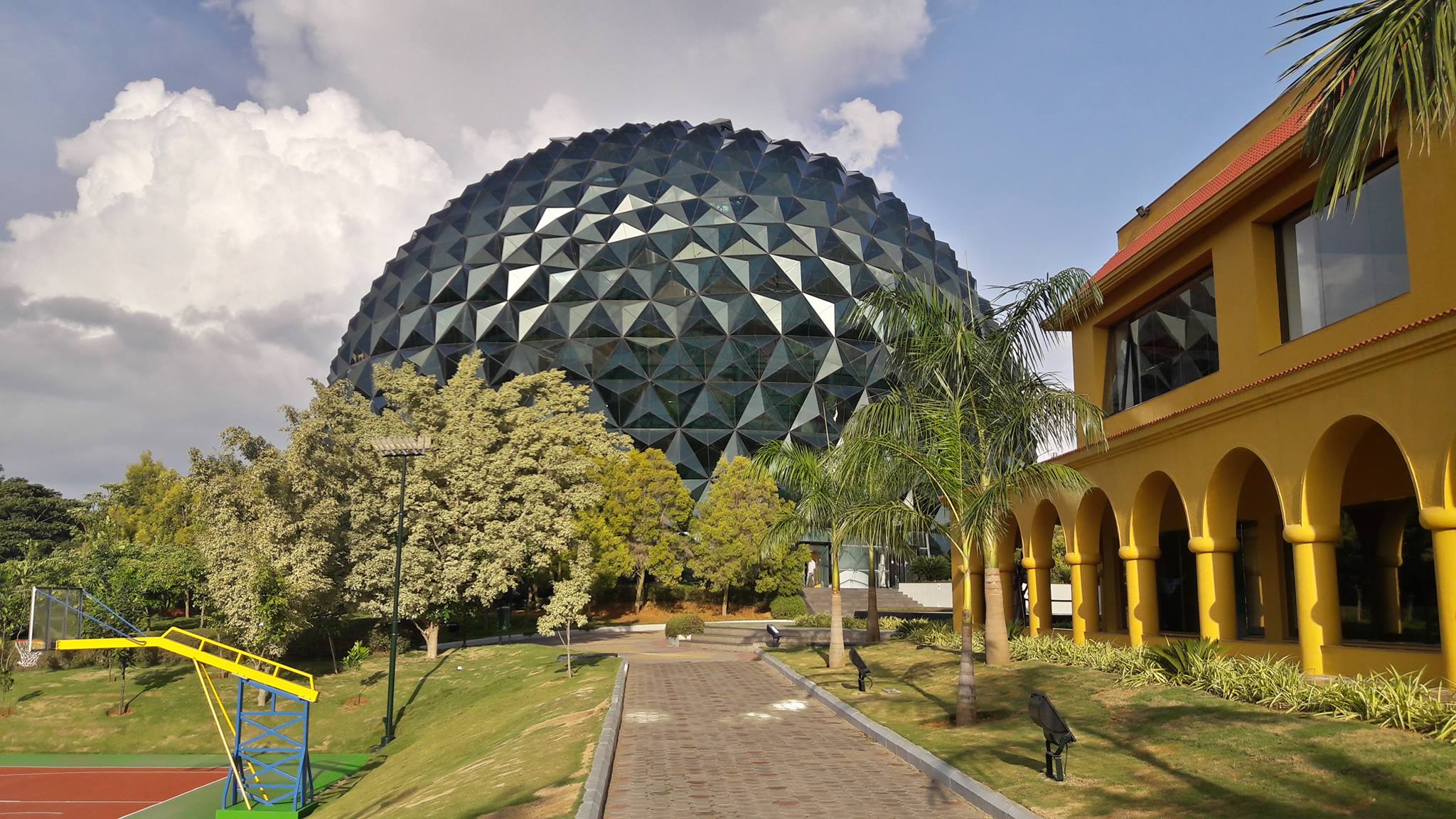
Source: Facebook
Infosys Limited's campus in Mysore has been recognized for its eco-friendly building designs, earning the prestigious LEED Platinum certification from the Indian Green Building Council (IGBC). This certification is awarded to buildings that meet high standards in sustainability and environmental responsibility.
One of the standout structures is the Software Development Block 5 (SDB 5), completed in March 2011. This building incorporates several green features:
- Energy Efficiency: SDB 5 is designed to be 40% more energy-efficient than standard buildings. This is achieved through insulated walls and roofs, special double-glazed windows that reduce heat, and advanced automation systems. These measures help in significantly reducing energy consumption.
- Natural Lighting: About 90% of the office space in SDB 5 utilizes natural daylight, reducing the need for artificial lighting during the day. Light shelves along the windows help direct sunlight deeper into the building, enhancing brightness and reducing energy use.
- Water Conservation: The building has achieved a 58% reduction in water usage by installing efficient plumbing fixtures and using recycled water for landscaping. This approach minimizes the demand on freshwater resources.
- Sustainable Materials: During construction, 10% of the materials used, such as aluminum, glass, and steel, were recycled. Additionally, 41% of the building materials were sourced locally, reducing transportation-related pollution.
Infosys's commitment to sustainable building practices in Mysore reflects a broader dedication to environmental stewardship, setting a benchmark for eco-friendly construction in the industry.
3. One Horizon Centre, Gurugram
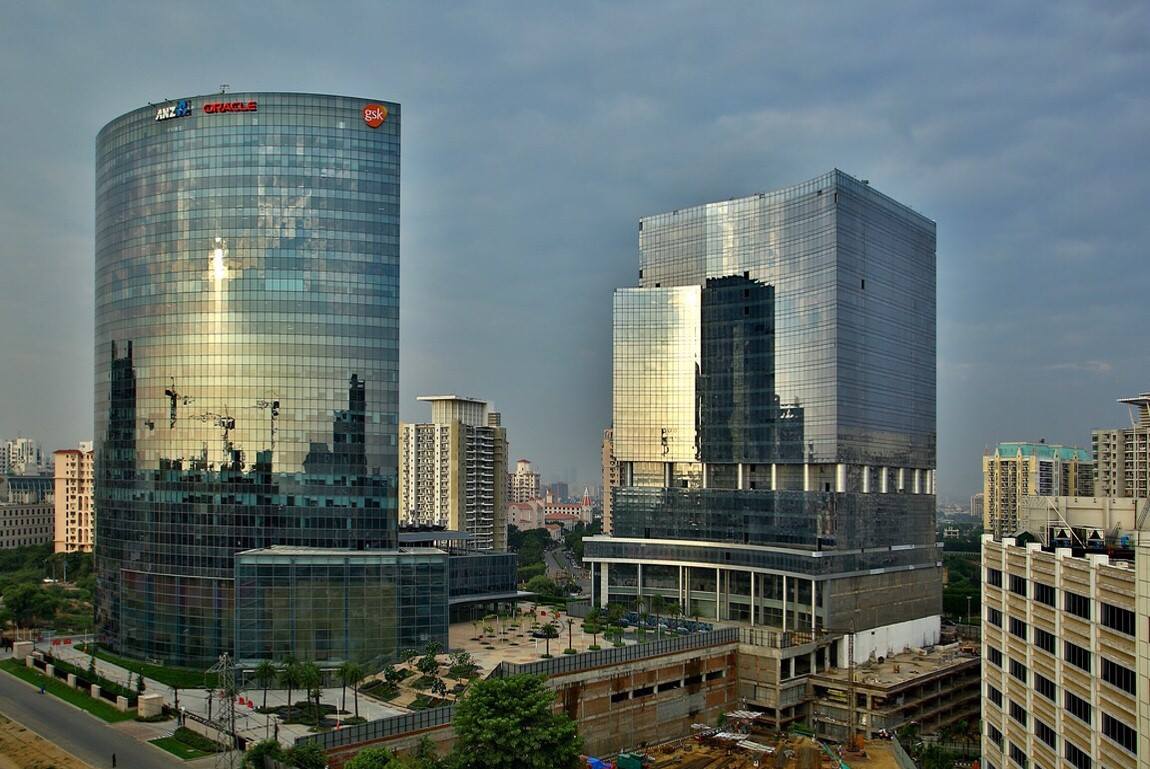
Source: Facebook
One Horizon Center, located on Golf Course Road in Gurgaon, is a prominent 25-story office building developed through a collaboration between Hines and DLF Ltd. Designed by the renowned Robert A.M. Stern Architects, the building was completed in 2014. In 2015, it earned the prestigious LEED Platinum certification under the Indian Green Building Council's (IGBC) LEED India Core and Shell (CS) program, recognizing its exceptional commitment to sustainable and eco-friendly design.
The building's design emphasizes energy efficiency, water conservation, and the use of sustainable materials, setting a high standard for green buildings in India. Its strategic location offers easy access to luxury residences, shopping centers, and fine dining, making it a sought-after business address in Gurgaon.
One Horizon Center's achievement of LEED Platinum certification underscores its role as a leader in promoting environmentally responsible building practices in India's commercial real estate sector.
4. BMW Training Centre, Gurgaon
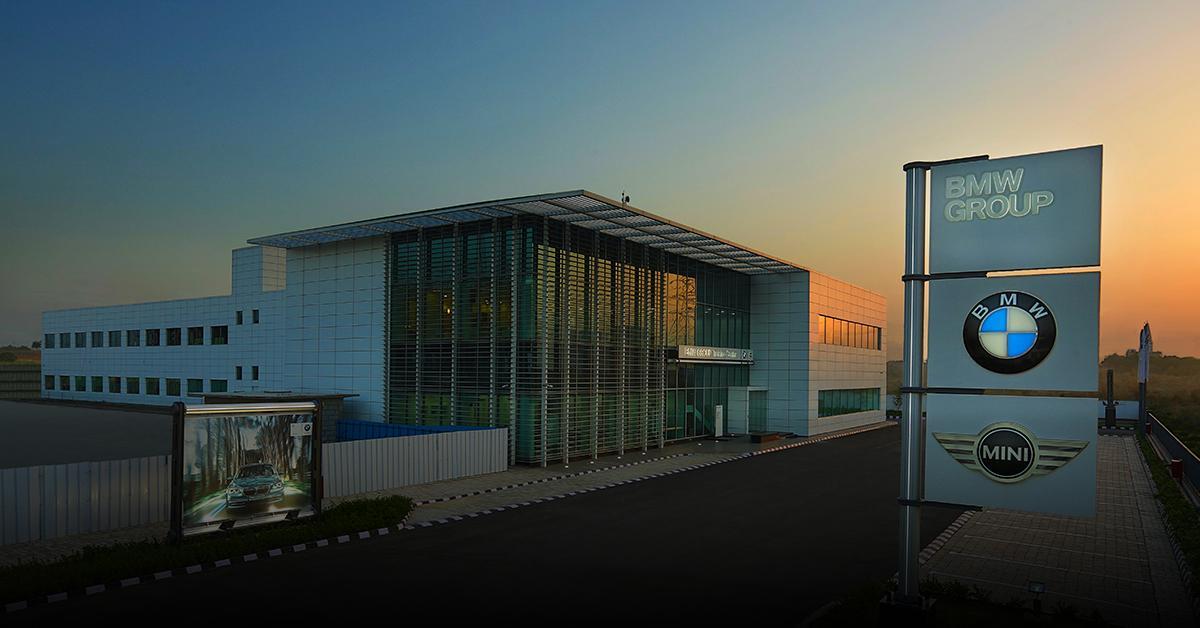
Source: Linkedin
In 2014, BMW Group India opened a state-of-the-art Training Centre in Gurgaon, Haryana. This facility, covering 2.2 acres, is designed to provide training for all BMW Group brands in the Indian market.
The Training Centre is equipped with eight training units for various programs, including technical and non-technical courses, as well as a Brand and Customer Institute. It also features three conference rooms and a spacious office area. The facility can accommodate up to 18,000 training man-days per year, ensuring comprehensive education for BMW associates and retail network members.
Reflecting BMW's commitment to sustainability, the Training Centre has achieved Gold certification from the Indian Green Building Council (IGBC) under the Leadership in Energy and Environmental Design (LEED) program. This certification recognizes the building's eco-friendly design and operations, highlighting BMW's dedication to environmental responsibility.
The establishment of this Training Centre underscores BMW Group India's focus on delivering premium products and services while maintaining a strong commitment to sustainable practices.
5. Indian Oil Institute of Petroleum Management, Gurugram
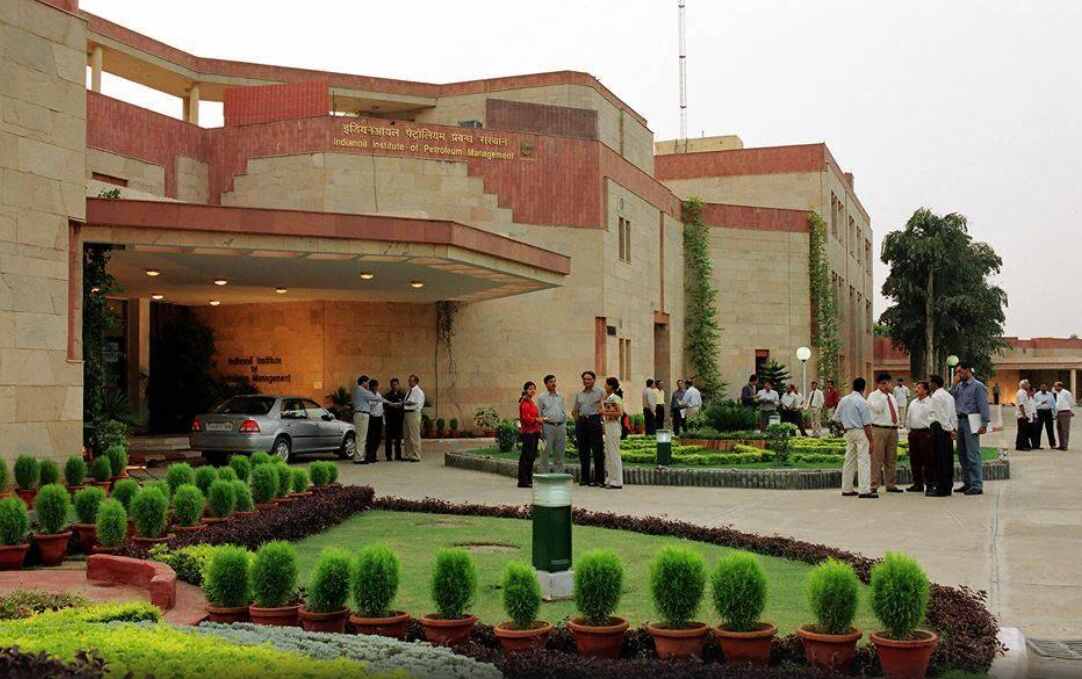
Source: Justdial
The Indian Oil Institute of Petroleum Management (IiPM) in Gurugram, Sector 18, is a top-notch learning and training center spread over 16 acres of lush green landscape. It is just a 20-minute drive from Delhi Airport, making it easily accessible. The institute is designed to provide a world-class learning environment with modern facilities, including air-conditioned lecture halls, a well-stocked library, an advanced computer center, and comfortable accommodations for participants and faculty.
Green Campus with IGBC Gold Certification
IiPM is proudly certified as a ‘Green Campus’ with a GOLD rating by the Indian Green Building Council (IGBC). This means the institute follows eco-friendly practices to reduce its impact on the environment. Some of its key green initiatives include:
✔ Rainwater harvesting to conserve water
✔ Solar energy utilization to reduce electricity consumption
✔ Bio-digestion of kitchen waste to produce natural manure for in-house use
Holistic Learning & Wellness
Apart from academics, IiPM believes in the overall well-being of its participants. The campus offers recreational facilities like a swimming pool, badminton court, gym, yoga sessions, and indoor games to help learners stay fit and relaxed.
With ISO 9001 certification and several awards for its innovative learning practices, IiPM continues to be a leader in training and development, while also setting an example for sustainable infrastructure in India.
6. State Bank Institute of Credit & Risk Management or State Bank, Gurgaon
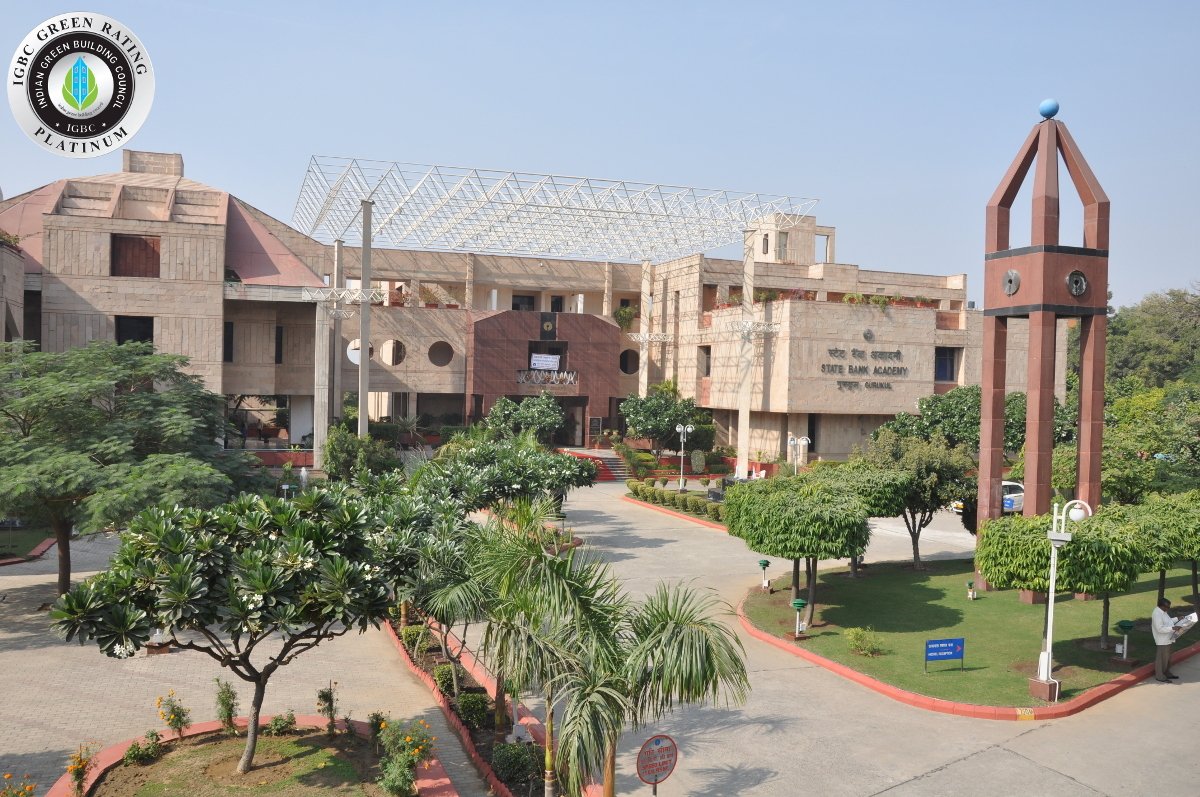
Source: X
The State Bank Institute of Credit & Risk Management (SBICRM) in Gurugram is a premier training institute dedicated to banking and financial education. Established in 1982, it specializes in training professionals in areas like credit management, international banking, risk, and compliance. The institute has played a key role in upskilling employees from various Indian and international banks, government agencies, and corporate organizations.
A Green Campus with IGBC Platinum Certification
SBICRM is not just a center for learning but also a leader in sustainability. The campus is spread across 11 acres and has received the prestigious Platinum Certification from the Indian Green Building Council (IGBC). This means the institute follows eco-friendly practices to conserve resources and reduce its environmental impact.
Key Green Features
- Energy-efficient design – Awarded a 4-star energy rating by the Bureau of Energy Efficiency (BEE)
- Sustainable infrastructure – Designed to reduce electricity and water consumption
- Lush green spaces – Maintains a pollution-free and eco-friendly environment
World-Class Facilities
The institute offers modern training amenities, including:
- Library and IT Lab for research and learning
- Conference Halls and Auditorium with a seating capacity of 300 people
- Open-Air Theatre and Heritage Gallery for cultural and educational events
SBICRM is not only a center for banking excellence but also a model for green infrastructure in India. With its commitment to sustainability and high-quality education, it stands as a benchmark for financial training institutes across the country.
7. TCS Techno Park, Chennai
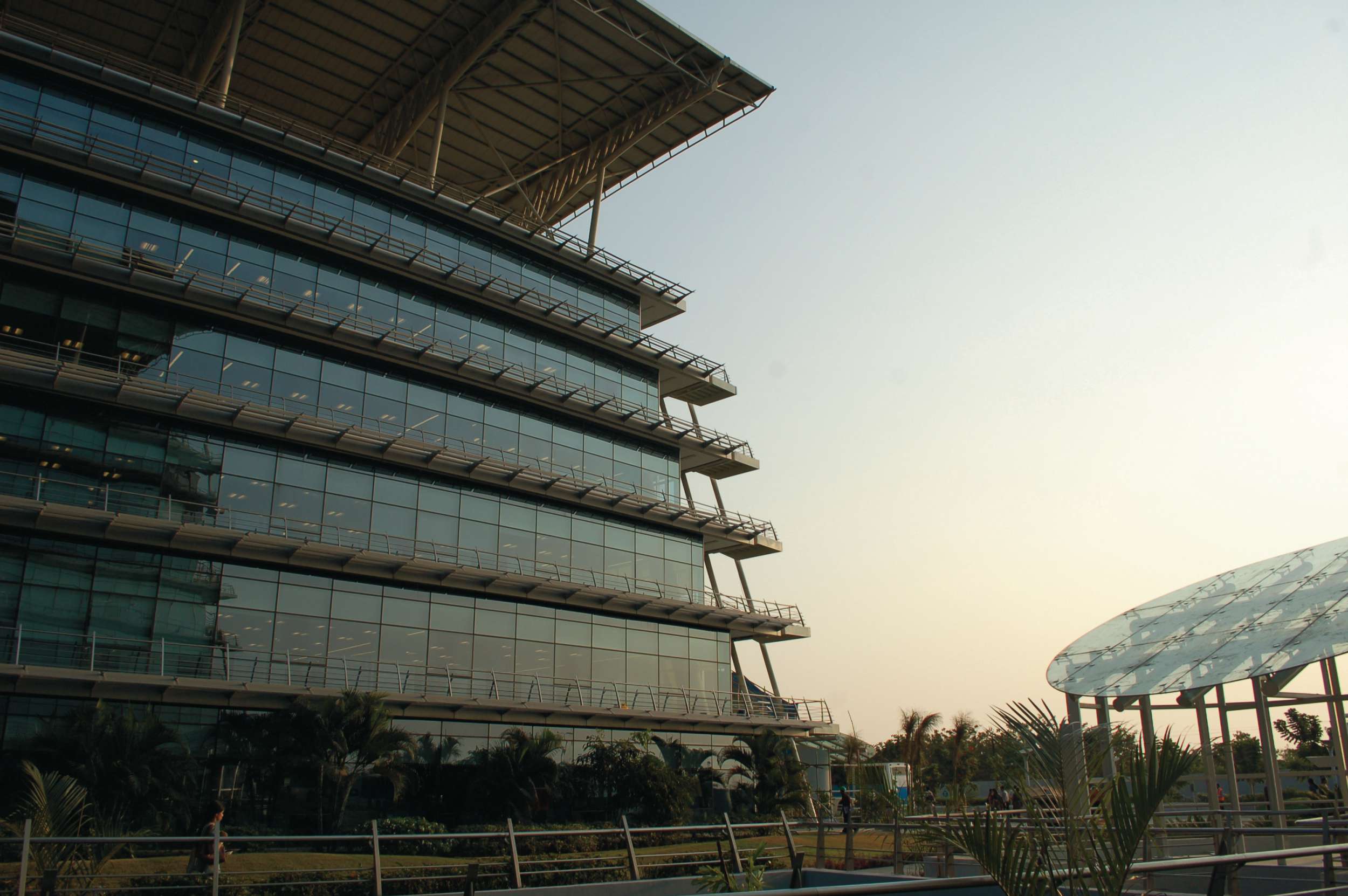
Source: Poncedeleon architects
Tata Consultancy Services (TCS) has developed a stunning Techno Park in Siruseri, Chennai, an architectural and engineering marvel designed to be both futuristic and eco-friendly. This $200 million IT park blends traditional Indian architecture with modern, sustainable design, making it a standout landmark in India’s IT corridor.
Designed by Carlos Ott Architects in association with Carlos Ponce de León Architects, the campus consists of 12 interconnected buildings shaped like butterfly wings, with a central spine of 400 meters providing a relaxing environment with water bodies, palm trees, and green landscapes. The highlight is a 130-meter-high tower, offering a panoramic view of Chennai’s skyline.
Sustainability and IGBC Certification
TCS Techno Park is not just about aesthetics—it is a model for sustainability. The campus is designed with energy-efficient processes, eco-friendly techniques, and a focus on reducing carbon footprints. It features:
- Natural ventilation and cooling systems to reduce energy use
- A massive canopy structure providing shade and temperature regulation
- Rainwater harvesting and zero waste disposal systems
- Use of eco-friendly materials to minimize environmental impact
Recognizing its commitment to green building standards, TCS Techno Park has been awarded IGBC and LEED Gold & Platinum certifications under the Indian Green Building Council’s rating system. This places it among India’s top sustainable IT campuses, setting a benchmark for future tech parks.
With its blend of innovation, sustainability, and cutting-edge design, TCS Techno Park, Chennai, stands as a shining example of India’s green building movement.
As India’s building sector continues to expand, integrating sustainability into construction practices is no longer an option but a necessity. The Indian Green Building Council (IGBC) is playing a pivotal role in promoting eco-friendly buildings that reduce environmental impact while enhancing the well-being of occupants. From residential complexes to corporate hubs and educational institutions, numerous projects across India have embraced IGBC’s green standards, proving that sustainable construction is both practical and rewarding. With government incentives and industry leaders pushing for greener initiatives, India is steadily moving towards an environmentally responsible future. By adopting green building practices today, we can ensure a healthier, more sustainable tomorrow for generations to come.

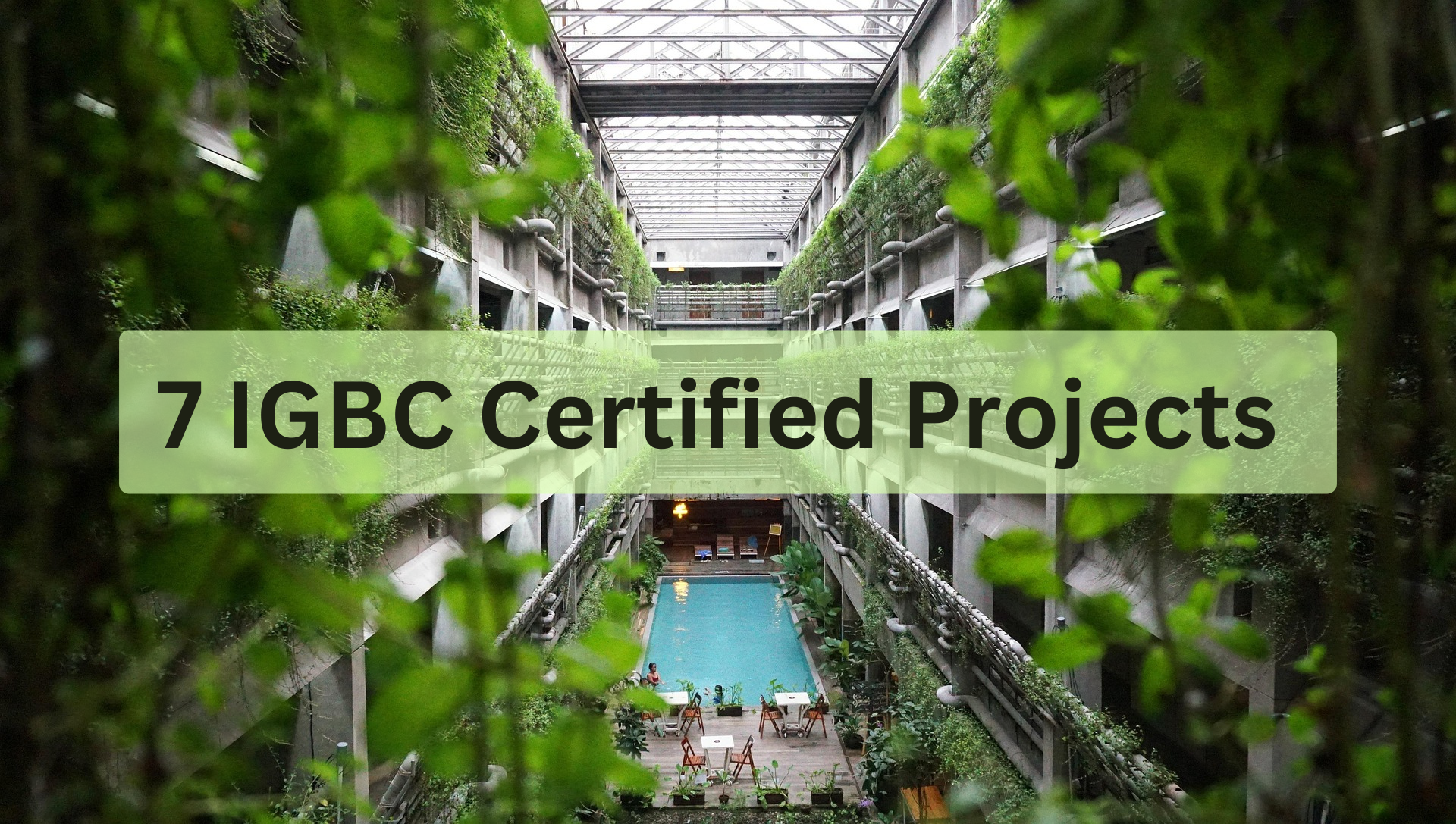
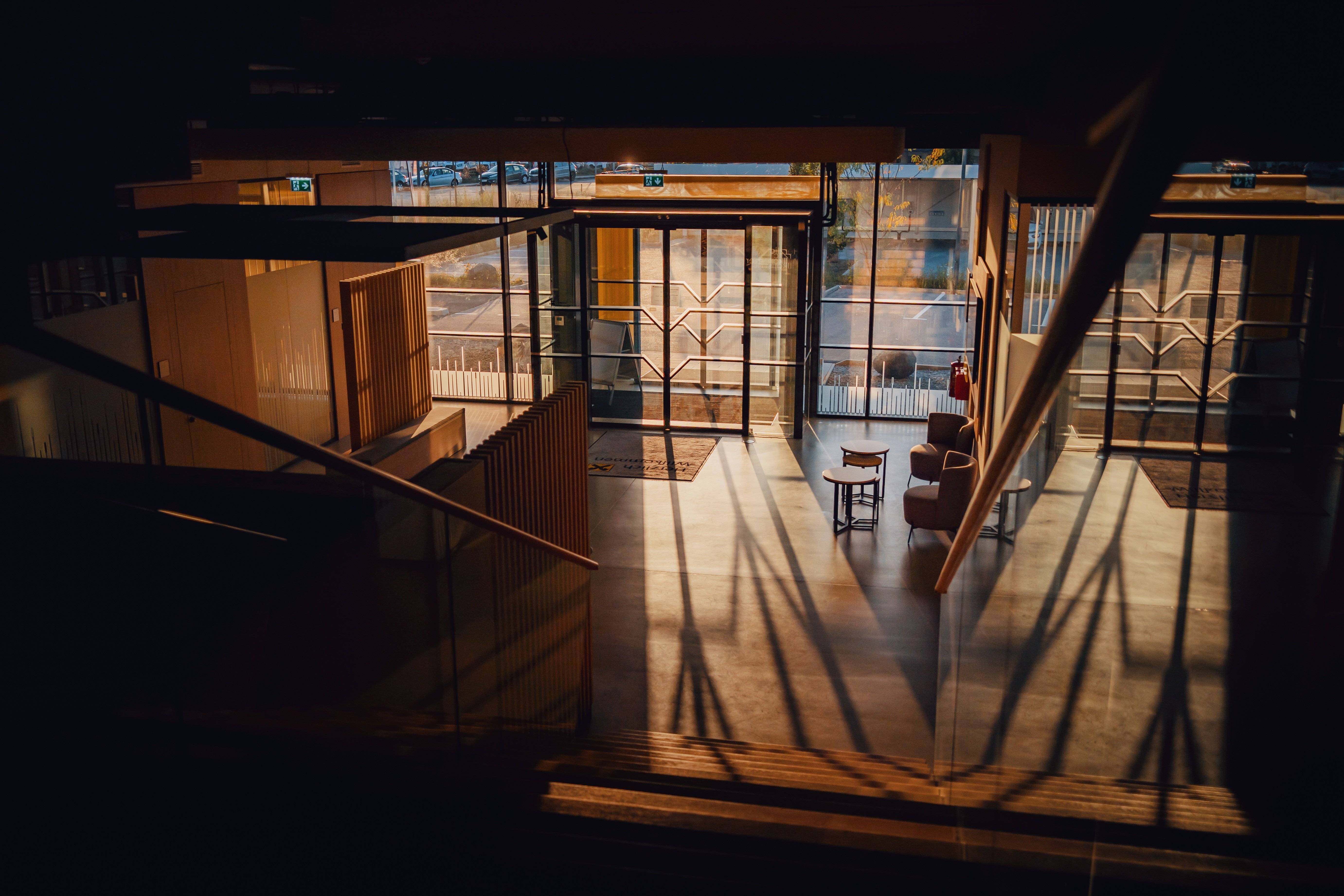
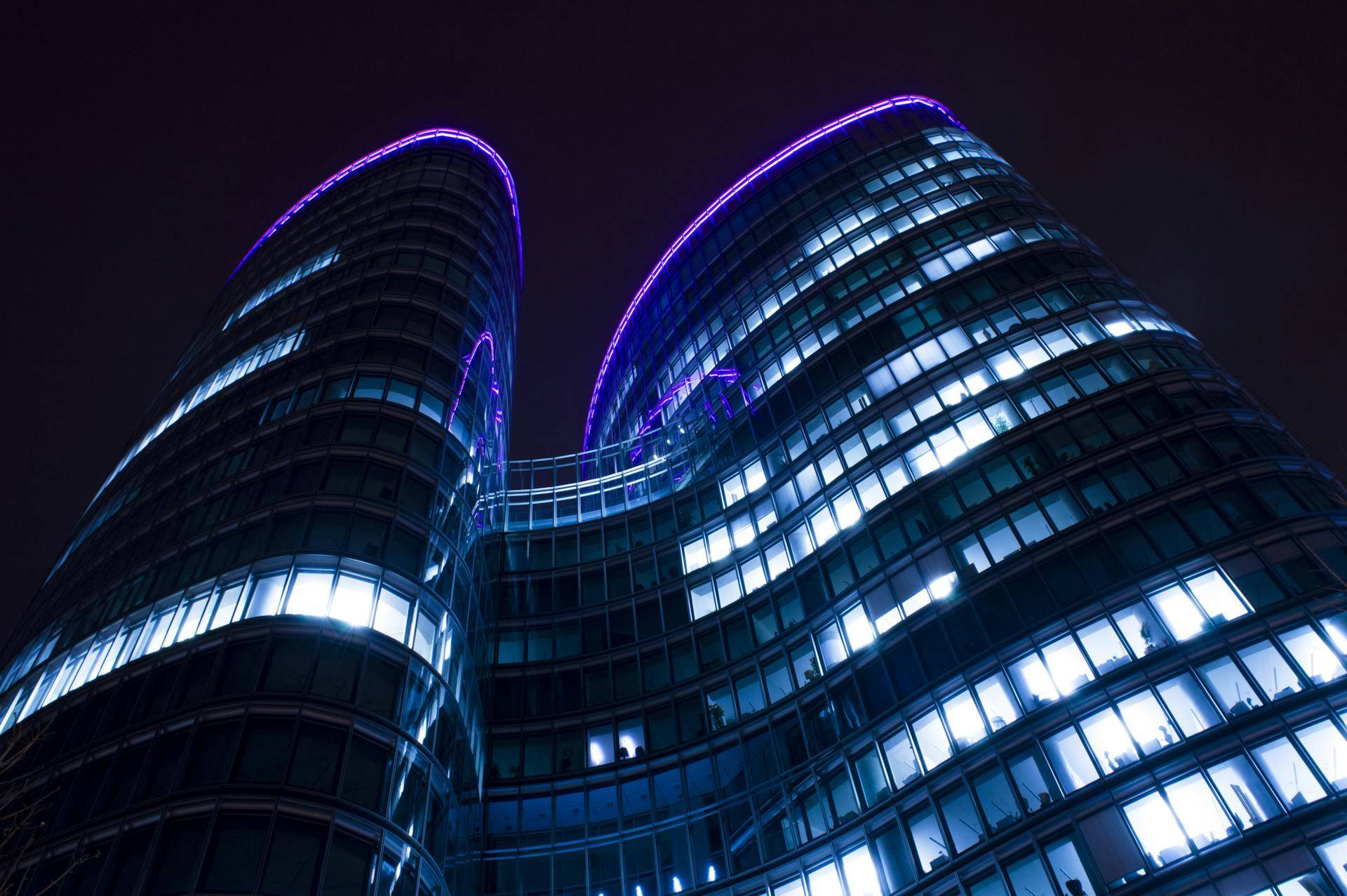





.png)